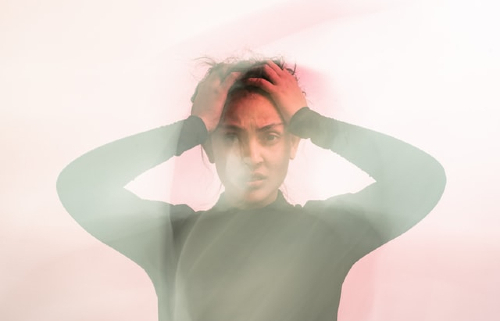How Long Does Hangxiety Last & How to Get Rid of Hangxiety
Table of Contents
What is Hangxiety?
The morning after a night of partying, everybody wakes up with more than just a hangover and nausea. If you have ever woken up drunk anxious, edgy, or bogged down, chances are that you are experiencing “hangxiety.” It is the hangover anxiety that causes you to be jittery, agitated, or worried about what happened when you were under the influence.
Hangxiety is a post-drinking sensation that occurs naturally, most times accompanied by objective hangover physical symptoms like weariness, thirst, and lacking concentration. Hangxiety is quite unsettling to any person, only more so if they are among those who, even normally, suffer from anxiety.
What Causes Hangxiety?
The root of hangxiety is the way that alcohol affects the brain chemistry. Alcohol initially induces relaxation and a feeling of euphoria by activating gamma-aminobutyric acid (GABA), a neurotransmitter that causes calmness, and blocking glutamate, which causes stress and anxiety.
But when the alcohol starts to wear off, your brain attempts to recover balance by reducing GABA and increasing glutamate. That counter-reaction might trigger more nervousness, anxiety, and misery. Your brain is overcorrecting for alcohol’s calming effect and you’re left feeling anxious than when you initially started drinking.
How Long Does Hangxiety Last?
The duration of hangxiety varies from person to person, yet most symptoms peak in a duration of 24 hours after the intake of alcohol. Nevertheless, depending on a range of variables responsible, some people still feel the impact for 48 hours or more.
Factors Influencing Duration of Hangxiety
-
Amount of Alcohol Intake
The more alcohol you consume, the longer it will be before your body can process it. Heavy drinking or bingeing can result in a worse and more sustained hangxiety attack. -
Individual Tolerance Levels
We all process alcohol differently. Some of us process alcohol more efficiently, and some of us are more sensitive to the effects of alcohol. Genetics, enzyme function, and general health all have a part in how well your body processes alcohol and recovers from hangxiety. -
Dehydration and Electrolyte Imbalance
Alcohol is a diuretic and leads to increased urine production, resulting in dehydration. Dehydration can worsen headache, dizziness, and anxiety and increase the duration of symptoms for hangxiety. Rehydration and replenishment of electrolytes must be done to minimize the duration of symptoms. -
Sleep Disturbance and Fatigue
While alcohol may put you to bed at first, it disrupts REM sleep, the part of sleep that plays a role in emotional management and memory formation. Sleep disturbances increase cortisol (the stress hormone) and amplify anxiety, so it doesn’t only feel worse, but also more lasting the next day. The more often you wake up and the more you disturb your sleep after drinking alcohol, the longer you will tend to suffer from hangxiety. -
Blood Sugar Swings
Alcohol can make your blood sugar erratic. Low blood sugar, or hypoglycemia, can cause feelings of anxiety such as shakiness, lightheadedness, and irritability. If your blood sugar remains low over time, it can extend hangxiety and make it worse. -
Mental Health Issues and Underlying Anxiety
Individuals with anxiety disorders, panic attacks, or depression tend to experience more intense and longer hangxiety. Alcohol affects neurotransmitters such as serotonin and dopamine that regulate mood. When these neurotransmitters drop after alcohol use, it may result in greater anxiety, in some individuals longer than the typical 24-hour period. -
Metabolism and Liver Function
Your liver metabolizes alcohol mainly. As your liver metabolizes alcohol at a slower pace, the toxic byproducts (such as acetaldehyde) linger longer, thus hangover symptoms last longer, such as anxiety. People suffering from liver disease or metabolic inefficiency will more and more experience lasting hangxiety.
How Long Can Hangxiety Last?
- Mild Cases: Within a couple of hours after waking up, improving with fluids, food, and sleep.
- Moderate Cases: Persists throughout the day, with a peak in morning anxiety and progressively decreasing by evening.
- Severe Cases: Prolonged for 24-48 hours, especially in patients with history of anxiety, sleep disturbance, or heavy use of alcohol.
If hangxiety is a persistent problem, it may be a symptom of something more serious, such as alcohol dependence or an anxiety disorder. Taking steps to manage alcohol consumption and overall mental well-being can minimize hangxiety and make it less long-lasting in the future.
How to Get Rid of Hangxiety
If you woke up with hangxiety, there are several things you can do to alleviate your body and mind from its effects. It turns out treating the body’s and mind’s symptoms of alcohol can actually significantly improve the way you feel. While there isn’t an automatic way to avoid hangxiety, you can substantially reduce your chances of acquiring it by following the below steps:
1. Rehydrate Your Body
Alcohol is a diuretic and thus leeches your body of essential fluids and electrolytes that cause dehydration, headache, and increased anxiety. Counter this by:
- Drinking plenty of water throughout the day. At least 8-10 glasses.
- Trying out electrolyte-added drinks such as coconut water, sports drinks, or adding electrolyte tablets in water to regain lost minerals like potassium and sodium.
- Drink herbal teas like chamomile, peppermint, or ginger, which can calm your stomach and relax you.
2. Have a Balanced Meal
Regardless of whether you are hungry or not, consuming the right food has the power to level your blood sugar level and also lighten your mood. Anxiety may be exacerbated by low blood sugar, so you should consume nutrient-dense foods.
- Opt for protein foods like eggs, chicken, or Greek yogurt to support neurotransmitter function and mood.
- Opt for complex carbohydrates like oatmeal, whole-grain toast, or brown rice, which can provide sustained energy and balance blood sugar levels.
- Add in healthy fats like avocado, nuts, or olive oil, which support brain function and lower inflammation.
- Eat magnesium-charged foods such as bananas, almonds, and dark leafy greens because magnesium calms the nervous system.
3. Rest Up
You can destroy your sleep pattern with alcohol, typically getting you sleep of poor quality. Waking up in terror means that your body is probably still recovering from not having had deep sleep.
- Take a nap if you have to, but a short one (20–30 minutes) so that you will not be sleepy.
- Do relaxing activities like watching a calming movie, listening to calming music, or reading a book.
- Implement a bedtime routine the next night to reboot your sleep cycle. A warm bath, candlelight, and no screen time before bed can improve sleep quality.
4. Do Gentle Movement
While severe exercise can intensify dehydration, gentle exercise can unlock endorphins, boosting your mood naturally.
- Go for a walk outside—sunlight and fresh air can clear your mind and stabilize your body’s circadian rhythm.
- Stretch or practice yoga, focusing on slow, deep breaths to relax and release tension.
- Practice progressive muscle relaxation, tensing and relaxing different groups of muscles to release physical tension.
5. Practice Meditation or Deep Breathing
Mindfulness exercises will soothe the nervous system and anxious mind.
- Practice 4-7-8 breathing: inhale for 4 seconds, hold for 7 seconds, exhale for 8 seconds. Repeat a few times to slow down heartbeat and anxiety.
- Utilize guided meditation apps like Headspace or Calm with anxiety-specific meditations.
- Maintain a journal to write down thoughts to release any lingering anxiety and fresh clarity.
6. Drink Less Alcohol
Some attempt to “cure” their hangxiety with a couple of drinks in the hopes this will settle down the symptoms. It only delays the symptoms and perhaps creates a dependency cycle, though.
- Don’t be tempted by the temptation for a “hair of the dog” drink, as this will prolong withdrawal symptoms and enhance hangxiety the next day.
- Attempt to cut back on future consumption of alcohol, especially if hangxiety is a recurring issue.
- Watching what is consumed and staying aware of limits can inhibit future situations.
7. Do Not Combine Alcohol with Other Drugs
Caffeine will intensify anxiety, speed up the heart, and make you even jitterier. Energy drinks or drugs combined with alcohol will also increase anxiety and cloud judgment.
- If you absolutely must have a pick-me-up, try drinks such as decaf coffee, herbal tea, or lemon water.
- If you absolutely have to have caffeine, drink a small amount and sip it slowly and see how your body handles it.
8. Speak with Someone
It may be helpful to talk over your feelings and concerns with someone.
- Call somebody you trust or someone you feel close to who will reassure you and encourage you.
- If hangxiety is a chronic problem, hire the services of a professional counselor or therapist to address the causes of your drinking and anxiety.
Long-Term Solutions to Prevent Hangxiety
If hangxiety is a chronic problem, change your life to prevent it in the future:
- Set limits on drinking—decide in advance what you will drink and do not go over that limit.
- Drink slowly and alternate with water to stay hydrated and reduce the effects of alcohol.
- Steer clear of binge drinking as it significantly increases the likelihood of experiencing hangxiety.
- Practice drinking awareness by being aware of your reaction to alcohol and engaging in social activities that do not involve alcohol.
By being kind to your mind and body, you can recover from the hangxiety symptoms and avoid it from occurring in the future. Professional assistance is a great way of discovering and healing the underlying causes if hangxiety is impacting your life.
When to Seek Help
If hangxiety is persistent and its consequences are negatively impacting your life, then it might be an indication of a hidden issue. Repeated drinking or excessive drinking has been found to lead to the creation of mental illnesses like generalized anxiety disorder and depression. Having an idea about the reasons why hangxiety arises and being proactive in the prevention and cure of the same will ensure you are better in charge of your body and mind and also make sounder choices regarding alcohol consumption.
If you’re struggling to manage alcohol or anxiety is a problem, it would be worth speaking with a mental health clinician. At Annandale Behavioral Health, we offer compassionate, evidence-based care to patients with alcohol and anxiety disorders. Our clinicians can help you learn healthier ways of coping and take back control of your life.
Final Thoughts
Hangxiety is a natural but unwanted side effect of alcohol. While it will usually resolve within a day, it can be miserable for long-term sufferers. By understanding the cause, being careful, and creating habits of self-care, you are able to reduce its impact and promote your mental well-being as a whole.
If you’re troubled after consuming an alcoholic beverage or are physically alcohol dependent, Annandale Behavioral Health is able to help. Contact us now to learn about our treatment options and how we can aid in your journey to better mental wellness.






